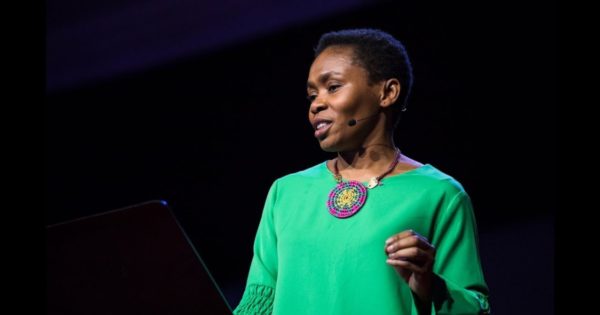
For the 2018 Abantu Book Festival, Cassava Republic founder Bibi Bakare-Yusuf was selected to deliver the Keynote Address. The full transcript of her speech, titled “Archival Fever,” is now available on Dipsaus.org. At the end of a year in which Cassava Republic received the London Book Fair’s Inclusivity in Publishing Award and released books that shaped literary and identity conversations, Bakare-Yusuf was named the 2018 Brittle Paper African Literary Person of the Year.
Here is an excerpt of her Keynote Address.
_________________________________________________________________________
I AM SO happy to be here today. To be on this stage and to share the Abantu vision. Before I begin, I want to say thank you, thank you for inviting me. I always feel I am home when I am here. Joburg is my second home. London is my first and Nigeria, my third home.
Let me begin, in 2003, I moved back to Nigeria to take up a position as a senior research fellow at Obafemi Awolowo university. The plan was to embark on a research project exploring how Yoruba women experience and conceptualise erotic love (This was before Lola Shoneyin gave us an incline into the erotic universe of Yoruba women in her brilliant, tragic-comic debut novel The Secret Lives of Baba Segi’s Wives). My research was going to be substantive, thorough and deliciously juicy and it would preoccupy me for the next few years. But, I was confounded by the empty bookshelves or lack thereof, in the middle-class homes I visited. As an avid reader who loved to talk about books, I looked into people’s shelves to get a sense of who they are and more importantly, their politics. Instead, many of the places I visited had empty bookshelves or when stocked at all, were filled with business, religious and self-help motivational books with titles like: ‘The Purpose Driven Life’, ‘Chicken Soup for the Soul’, ‘Rich Dad, Poor Dad’. And the few times I spotted fiction it was Dan Brown or John Grisham.
Really, I thought to myself, how do you build a civilisation or ignite the imagination based on such a meagre diet of Euro-American airport fiction and self-help books? Yes, I am judging! Where is the counter-balance? I wondered why Amos Tutuola, Mariama Ba, Bessie Head, Aminatta Forna, Zaynab Alkali, Paulin Hountondji, D.O. Fagunwa, Bernardine Evaristo or Ben Okri were missing from these shelves. These emptied of spirit bookshelves, this erasure of African voices and vibrancy from view became the inspiration to set up a publishing company, Cassava Republic Press.
Archive
So, what I want to talk about today is why I have chosen the path of publishing and why I think it is necessary and urgent that we build a publishing infrastructure on the continent. It is not enough for us to say we must tell our own stories, if we don’t equally think or talk about the enabling infrastructure that supports the generation of those stories, the infrastructure that enables the circulation of ideas and the flow of knowledge. It is publishers who take stories from their raw state and turn them into food, food that may nourish or poison us. We have to talk about and acknowledge the unseen infrastructure that ensures that books are in circulation, because books, unlike print media or blogs, offer us some of the densest, extended and interpretive conversations we can have about the world around us. It is also through books that some of the most enduring and pernicious images about Africa and black people persists. Yet, books also have a redemptive potential and plenitude. It is through books that we come to learn and read about each other as Africans across our differences and continue to have a reason to gather (as we are here today) so that we can salivate over the apparent genius of the solitary writer while we sublimate the collective geniuses (the editor, book designer, proof reader, copy editor, publicist, sales people, indexer, the literary critic, the blogger, instagramer etc.) that are involved in the production of any one book for the celebration of the singular authorial voice.
Still, even in the age of new socialising media, who can deny that a book as a material object is infinitely richer and more meaningful than any of the arts? This is because through the thick description they enable, all the other artefacts of civilisation (music, fine arts, film, science etc) can be folded and compressed into that singular object. In the book, worlds, cultures, emotions and habits of being are collected, dissected and revealed to us so that we can have different voices to converse with in that quiet moment of aloneness, or to whip out to stimulate debate, dialogue or forment a revolution.
_________________________________________________________________________
Read the full speech on Dipsaus.org.








COMMENTS -
Reader Interactions